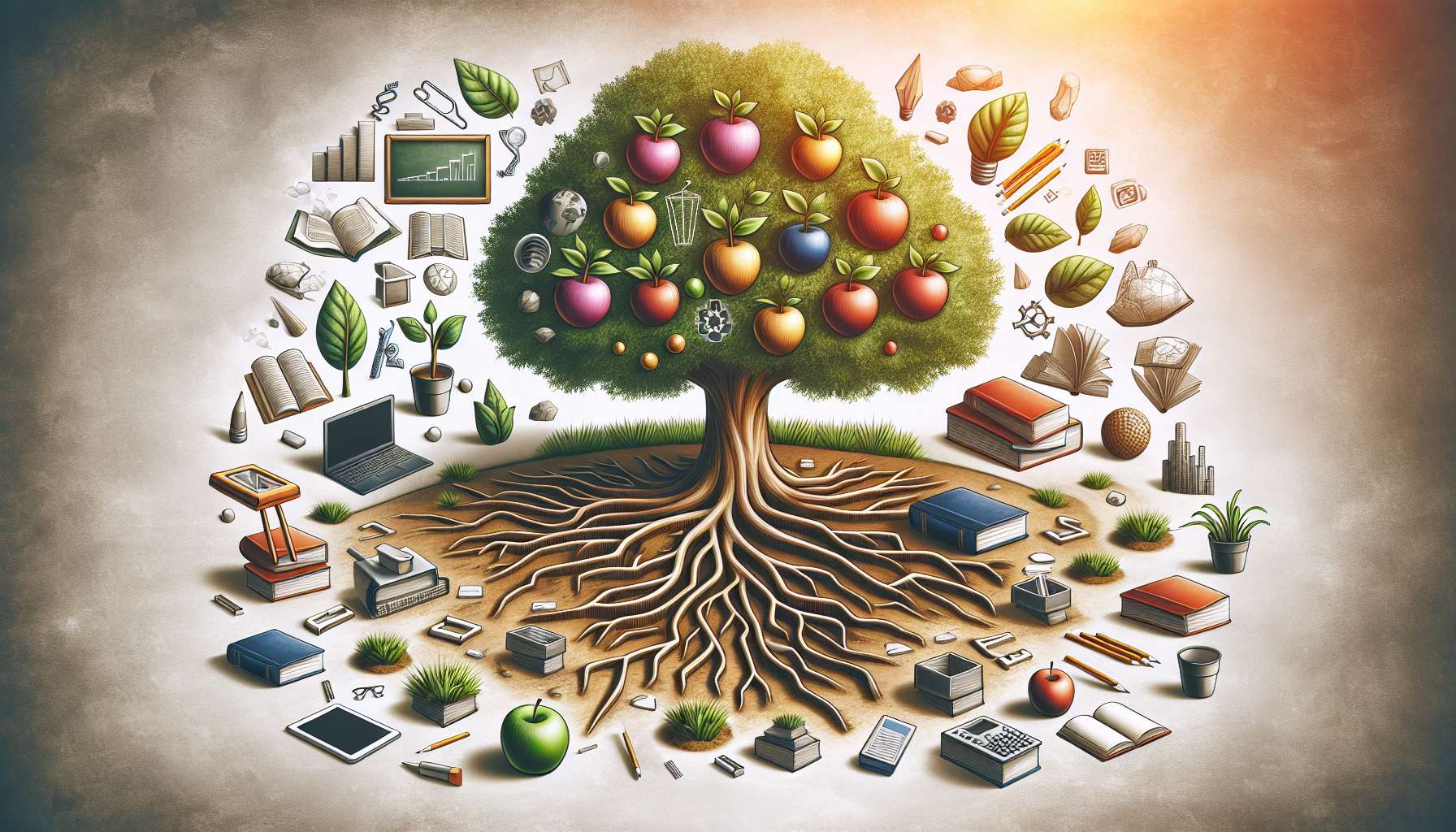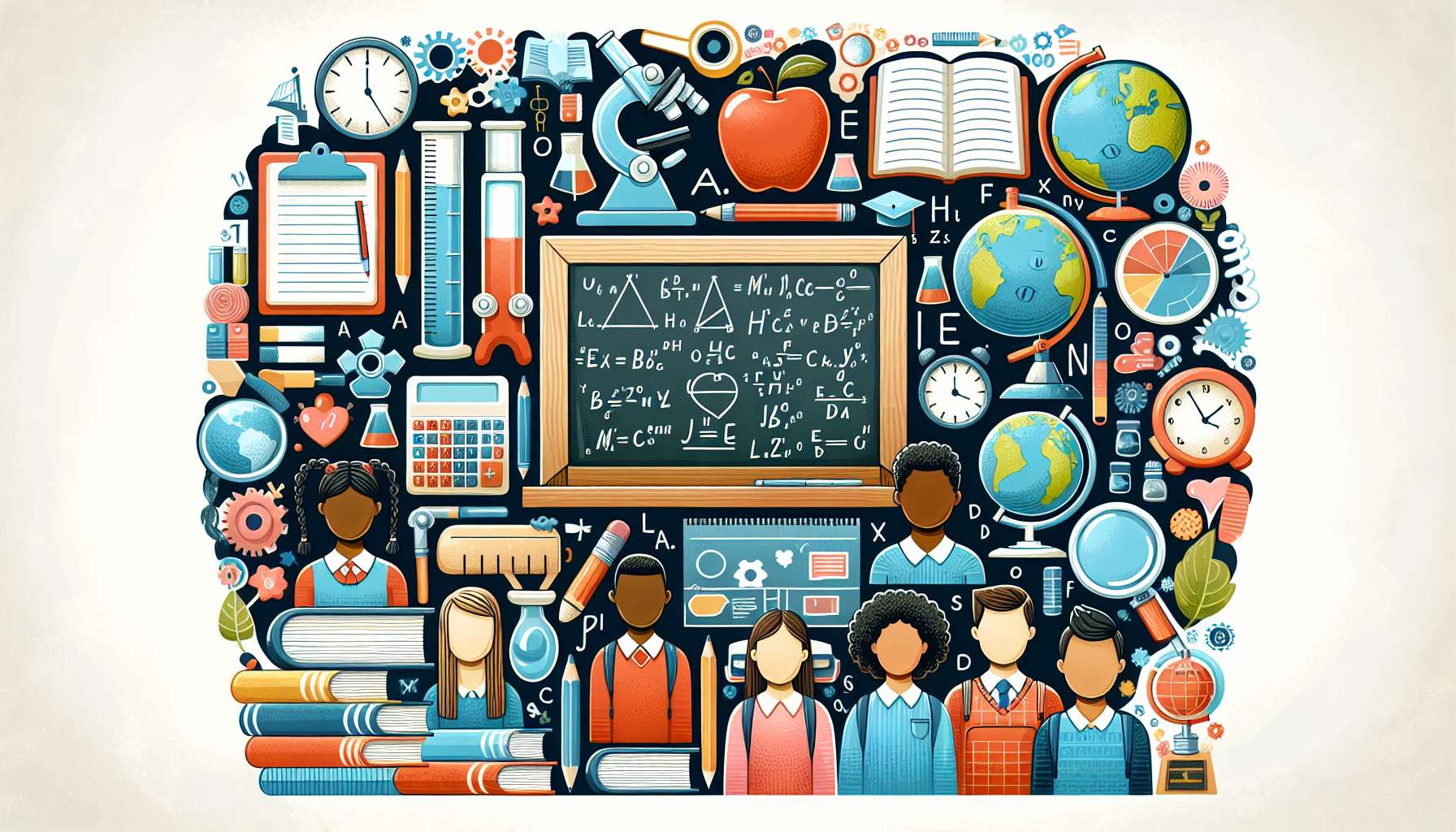The Essentials of Knowledge Acquisition Basics
Knowledge acquisition is a fundamental process that underpins human learning and understanding. It encompasses how individuals gather, assimilate, and apply information to enhance their cognitive abilities and make informed decisions. In a rapidly evolving world where knowledge is power, mastering the basics of knowledge acquisition is crucial for personal and professional growth. This article delves into the intricacies of knowledge acquisition, exploring its various facets, applications, and implications.
Understanding Knowledge Acquisition
At its core, knowledge acquisition refers to the process of obtaining and internalizing information from various sources, including experiences, education, observation, and interaction with others. It involves transforming raw data into meaningful insights, facts, and skills that can be utilized to solve problems, make decisions, and navigate the complexities of life. Knowledge acquisition is a continuous and dynamic process that evolves as individuals engage with new information and experiences.
One of the key components of knowledge acquisition is information processing, which involves the cognitive activities of perception, attention, memory, and reasoning. Through these cognitive processes, individuals actively engage with incoming information, analyze its relevance, and integrate it into their existing knowledge framework. Effective knowledge acquisition requires critical thinking, reflection, and the ability to discern valuable information from noise.
The Role of Memory in Knowledge Acquisition
Memory plays a crucial role in knowledge acquisition by storing and retrieving information for future use. There are different types of memory systems that contribute to the acquisition and retention of knowledge, including sensory memory, short-term memory, and long-term memory. Sensory memory briefly holds incoming sensory information, allowing individuals to process and filter relevant information for further storage. Short-term memory acts as a temporary workspace for actively manipulating and rehearsing information, while long-term memory stores information for extended periods, shaping individuals’ knowledge base and expertise.
Effective knowledge acquisition involves leveraging memory strategies such as rehearsal, chunking, and mnemonic devices to enhance information retention and retrieval. By actively engaging with information, connecting it to existing knowledge, and repeating key concepts, individuals can reinforce their memory traces and solidify their understanding of complex topics.
Learning Theories and Knowledge Acquisition
Several learning theories provide insights into the mechanisms and processes underlying knowledge acquisition. Behaviorism, for example, emphasizes the role of reinforcement and conditioning in shaping behavior and learning. According to behaviorist principles, individuals acquire knowledge through external stimuli, rewards, and punishments that reinforce desired behaviors and discourage undesirable ones.
In contrast, cognitive theories of learning focus on the mental processes involved in knowledge acquisition, such as attention, memory, and problem-solving. Constructivism posits that individuals actively construct their understanding of the world through experiences, interactions, and reflective thinking. By engaging with real-world problems, collaborating with others, and exploring diverse perspectives, learners can construct meaningful knowledge structures that facilitate deeper understanding and long-term retention.
Technological Advances and Knowledge Acquisition
Advancements in technology have revolutionized the landscape of knowledge acquisition, providing new tools and platforms for accessing, creating, and sharing information. The internet, in particular, has democratized knowledge by making vast resources and educational content accessible to a global audience. Online learning platforms, virtual reality simulations, and artificial intelligence applications have transformed the way individuals acquire and engage with knowledge, enabling personalized and interactive learning experiences.
Technology-enhanced learning environments facilitate active learning, collaborative problem-solving, and self-directed exploration, empowering individuals to take control of their learning journey. By leveraging multimedia resources, interactive simulations, and adaptive learning algorithms, learners can tailor their learning experiences to suit their preferences, pace, and learning objectives. Technology also enables real-time feedback, assessment, and monitoring of learning progress, enhancing the effectiveness and efficiency of knowledge acquisition.
Applications of Knowledge Acquisition in Education
Knowledge acquisition is a foundational concept in education, guiding the design of curriculum, instructional strategies, and assessment practices. Educators leverage various pedagogical approaches to facilitate knowledge acquisition, such as inquiry-based learning, problem-based learning, and experiential learning. These approaches emphasize active engagement, critical thinking, and application of knowledge in real-world contexts, fostering deep understanding and retention of information.
Assessment plays a crucial role in knowledge acquisition, providing feedback on learners’ understanding, skills, and competencies. Formative assessment techniques, such as quizzes, discussions, and projects, enable educators to monitor student progress, identify misconceptions, and provide targeted support. Summative assessment methods, such as exams and performance tasks, evaluate learners’ mastery of content and skills, informing instruction and guiding future learning activities.
Challenges and Controversies in Knowledge Acquisition
While knowledge acquisition is essential for personal and professional development, it is not without challenges and controversies. One of the key challenges is information overload, where individuals are inundated with vast amounts of data and content, making it difficult to discern relevant and reliable information. In an era of fake news, misinformation, and echo chambers, critical thinking skills and media literacy are essential for navigating the information landscape and making informed decisions.
Another challenge in knowledge acquisition is cognitive bias, where individuals exhibit systematic errors in judgment and decision-making due to unconscious mental shortcuts and heuristics. Cognitive biases, such as confirmation bias, availability bias, and anchoring bias, can distort individuals’ perception of reality, leading to flawed reasoning and faulty conclusions. Overcoming cognitive biases requires self-awareness, metacognition, and deliberate efforts to evaluate evidence objectively.
Expert Opinions on Knowledge Acquisition
Experts in the field of cognitive psychology and education emphasize the importance of active learning, metacognition, and self-regulated learning in knowledge acquisition. Dr. John Hattie, a prominent researcher in educational psychology, highlights the role of feedback, self-efficacy, and teacher-student relationships in enhancing students’ learning outcomes. According to Dr. Carol Dweck, a leading expert in motivation and mindset, fostering a growth mindset and promoting a culture of effort and resilience are key factors in promoting knowledge acquisition and academic success.
Dr. Daniel Willingham, a cognitive scientist and author, emphasizes the cognitive principles that underpin effective learning and memory. His work on the science of learning sheds light on how individuals process and retain information, offering practical strategies for optimizing knowledge acquisition and retention. By understanding the cognitive mechanisms involved in learning, educators and learners can enhance their learning strategies and improve their knowledge acquisition skills.
Common Misconceptions about Knowledge Acquisition
One common misconception about knowledge acquisition is that it is a passive and linear process of memorization and regurgitation. In reality, knowledge acquisition is an active and dynamic process that involves critical thinking, reflection, and synthesis of information. By engaging with complex problems, exploring diverse perspectives, and applying knowledge in real-world contexts, individuals can deepen their understanding and enhance their cognitive abilities.
Another misconception is that knowledge acquisition is solely dependent on individual effort and intelligence. While intrinsic motivation, perseverance, and intellectual curiosity are essential for knowledge acquisition, external factors such as social support, learning environments, and instructional practices also play a significant role in shaping learning outcomes. By fostering a supportive and conducive learning environment, educators and institutions can enhance students’ knowledge acquisition and academic achievement.
Comparative Analysis of Knowledge Acquisition Models
Several knowledge acquisition models exist, each offering unique insights into the process of learning and knowledge transfer. The cognitive apprenticeship model, proposed by Collins et al., emphasizes the role of expert guidance, modeling, and scaffolding in facilitating knowledge acquisition. Through apprenticeship-style learning experiences, novices can observe, imitate, and practice skills under the guidance of knowledgeable mentors, accelerating their learning and skill development.
The constructivist model of knowledge acquisition, advocated by Jean Piaget and Lev Vygotsky, posits that learning is a social and collaborative process that occurs through interactions with others and the environment. By engaging in authentic tasks, collaborating with peers, and receiving feedback from experts, learners can construct meaningful knowledge structures and develop higher-order thinking skills. The constructivist model highlights the importance of active engagement, reflection, and social interaction in knowledge acquisition.
Final Thoughts on Knowledge Acquisition Basics
Knowledge acquisition is a multifaceted and dynamic process that shapes individuals’ understanding, skills, and perspectives. By actively engaging with information, leveraging memory strategies, and applying cognitive principles, individuals can enhance their learning and problem-solving abilities. In a rapidly changing world where knowledge is abundant and accessible, mastering the basics of knowledge acquisition is essential for personal growth, professional success, and lifelong learning.
To wrap things up, knowledge acquisition is a journey of discovery, exploration, and transformation that empowers individuals to navigate the complexities of the modern world. By embracing curiosity, critical thinking, and a growth mindset, individuals can unlock their potential and harness the power of knowledge to achieve their goals and aspirations.
References:
- Collins, A., Brown, J. S., & Newman, S. E. (1989). Cognitive apprenticeship: Teaching the crafts of reading, writing, and mathematics. In L. B. Resnick (Ed.), Knowing, learning, and instruction: Essays in honor of Robert Glaser (pp. 453-494). Hillsdale, NJ: Lawrence Erlbaum Associates.
- Dweck, C. S. (2006). Mindset: The new psychology of success. New York: Ballantine Books.
- Hattie, J. (2012). Visible learning for teachers: Maximizing impact on learning. New York: Routledge.
- Willingham, D. T. (2009). Why don’t students like school?: A cognitive scientist answers questions about how the mind works and what it means for the classroom. San Francisco, CA: Jossey-Bass.




